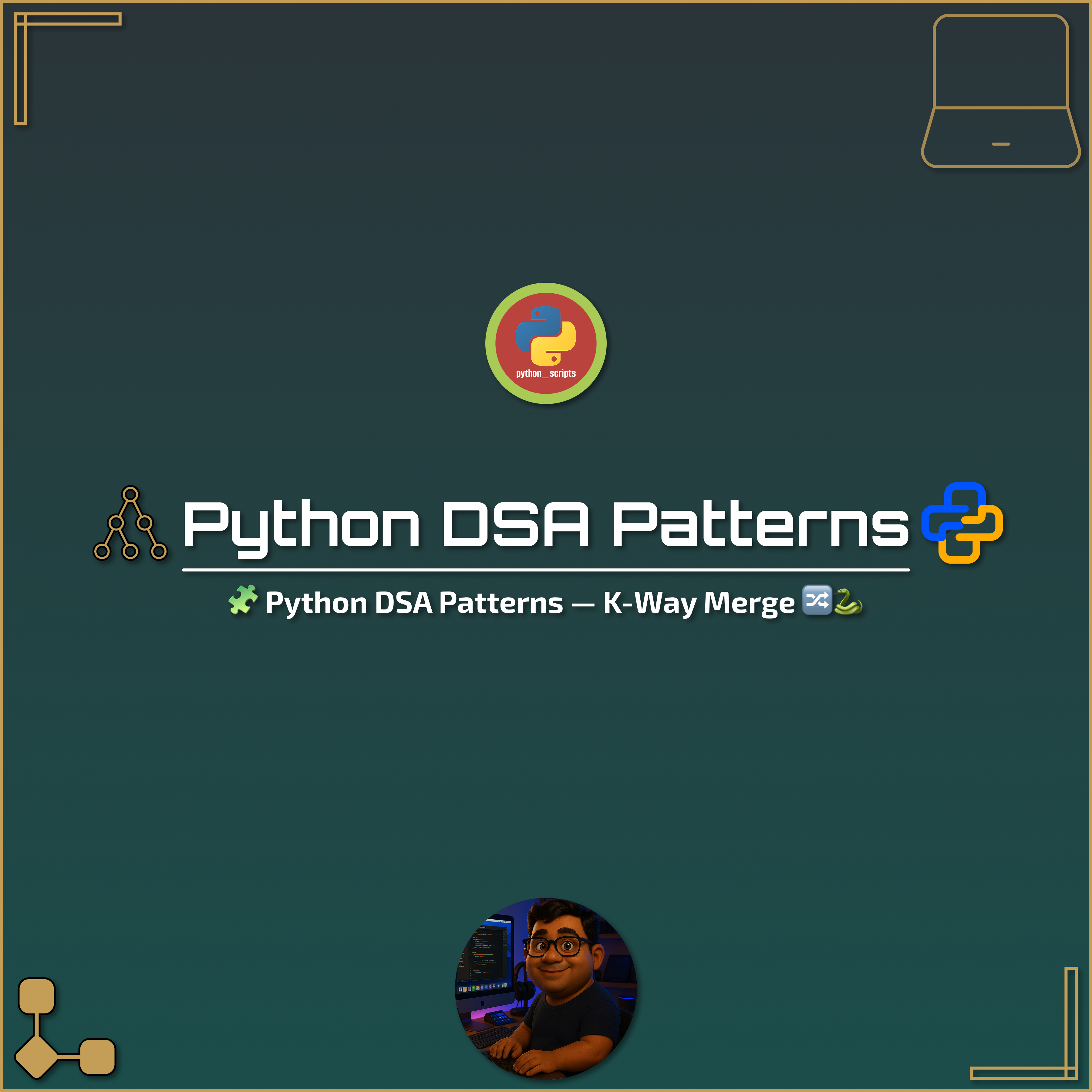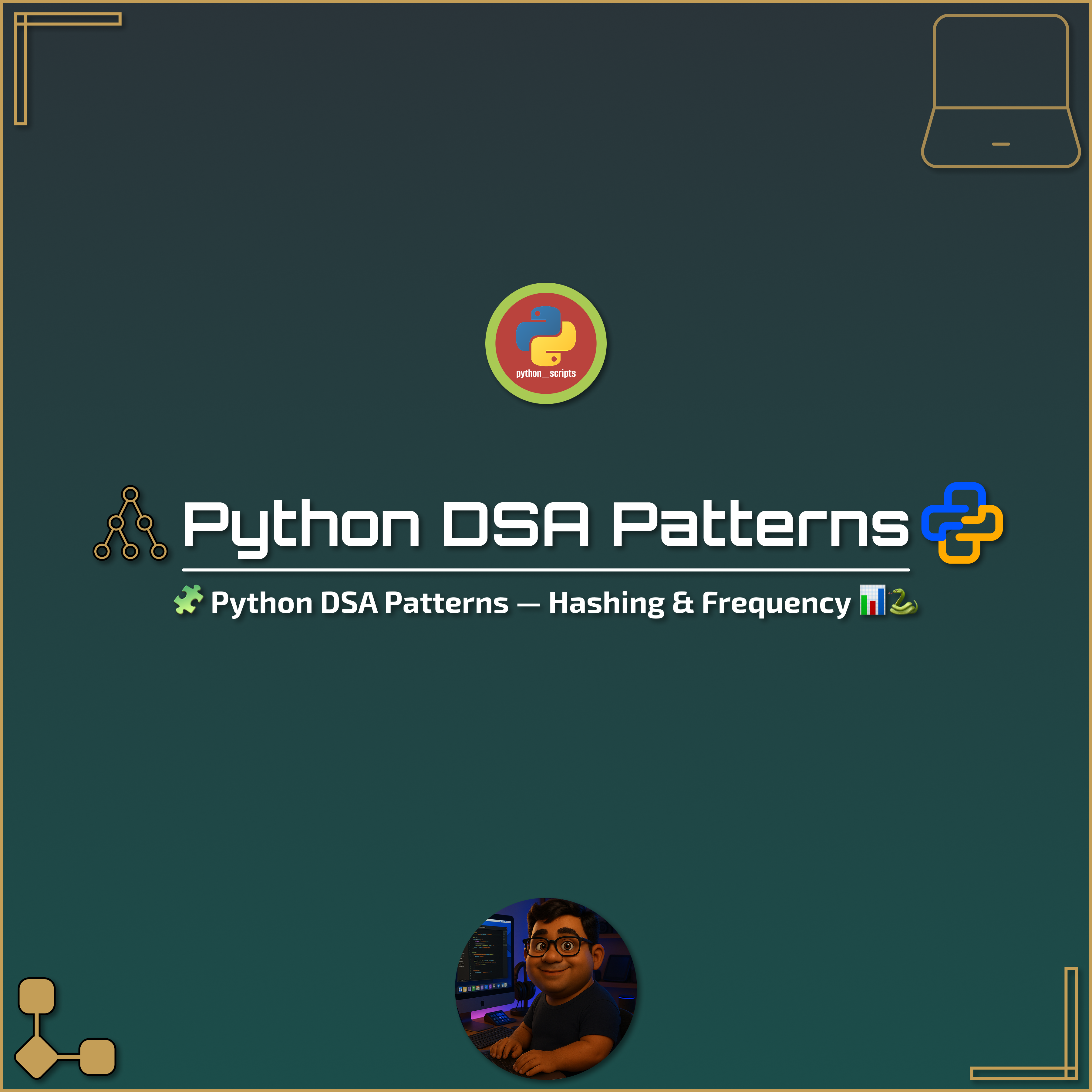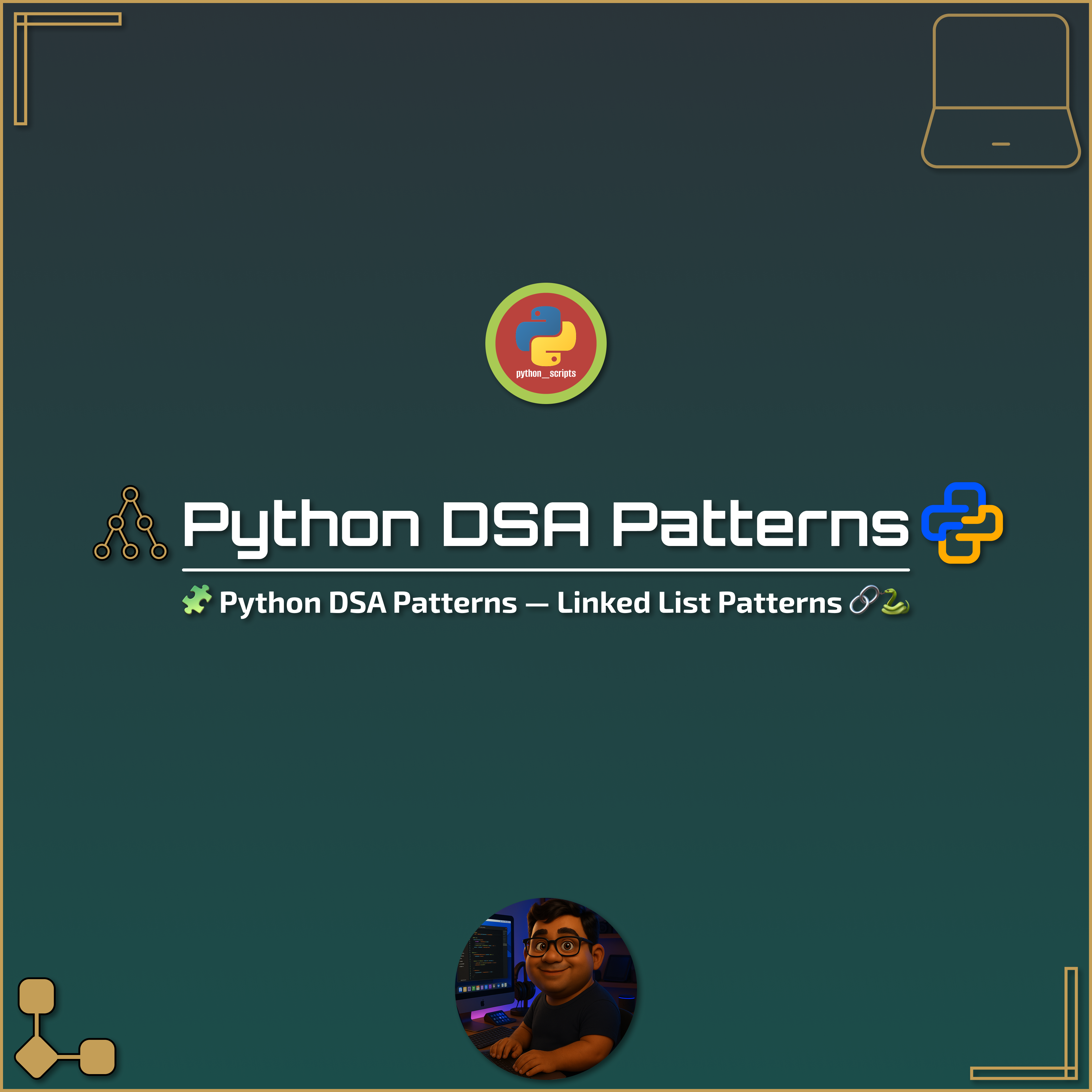🧩 Python DSA Patterns — Greedy Technique Intro 🔑🐍
Posted on: October 10, 2025
Description:
The Greedy technique builds a solution step by step, always choosing the locally optimal choice at each step.
If the problem satisfies the greedy-choice property and optimal substructure, this approach often leads to the global optimum.
✨ When to Use
- Problem can be solved by making a sequence of choices.
- Each choice depends only on the current state, not future consequences.
- The problem shows optimal substructure (optimal solution can be built from optimal subproblems).
⚡ Advantages
- Usually faster and simpler than DP.
- Efficient for many optimization problems.
- Requires less memory (no large DP tables).
❗ Limitations
- Greedy doesn’t always guarantee the correct global optimum.
- Must verify the problem satisfies greedy-choice property.
📝 Example 1 — Activity Selection Problem
Select the maximum number of non-overlapping activities given start & end times.
def activity_selection(activities):
# activities: list of (start, end) times
# sort by end time
activities.sort(key=lambda x: x[1])
result = []
last_end = 0
for start, end in activities:
if start >= last_end:
result.append((start, end))
last_end = end
return result
print(activity_selection([(1,3),(2,4),(3,5),(0,6),(5,7),(8,9)]))
# Output: [(1,3),(3,5),(5,7),(8,9)]
📝 Example 2 — Coin Change (Minimum Coins)
Given coin denominations, make change for an amount with the fewest coins (works when greedy is optimal, e.g., standard currencies).
def coin_change(coins, amount):
coins.sort(reverse=True) # pick largest first
result = []
for coin in coins:
while amount >= coin:
amount -= coin
result.append(coin)
return result
print(coin_change([1,2,5,10], 27))
# Output: [10, 10, 5, 2]
📝 Example 3 — Huffman Coding (Conceptual)
Greedy is used to build optimal prefix codes by repeatedly combining the lowest-frequency nodes.
(Usually implemented with a min-heap — beyond basics, but shows greedy’s reach).
✅ Key Takeaways
- Greedy = choose the best option available at each step.
- Works only when local choices → global optimum.
- Common in scheduling, interval problems, minimum spanning trees, Huffman coding, coin change.
🏋️ Practice Problems
- Activity Selection (classic scheduling).
- Coin Change (minimum coins).
- Fractional Knapsack.
- Minimum Spanning Tree (Prim’s / Kruskal’s).
- Huffman Coding.





No comments yet. Be the first to comment!